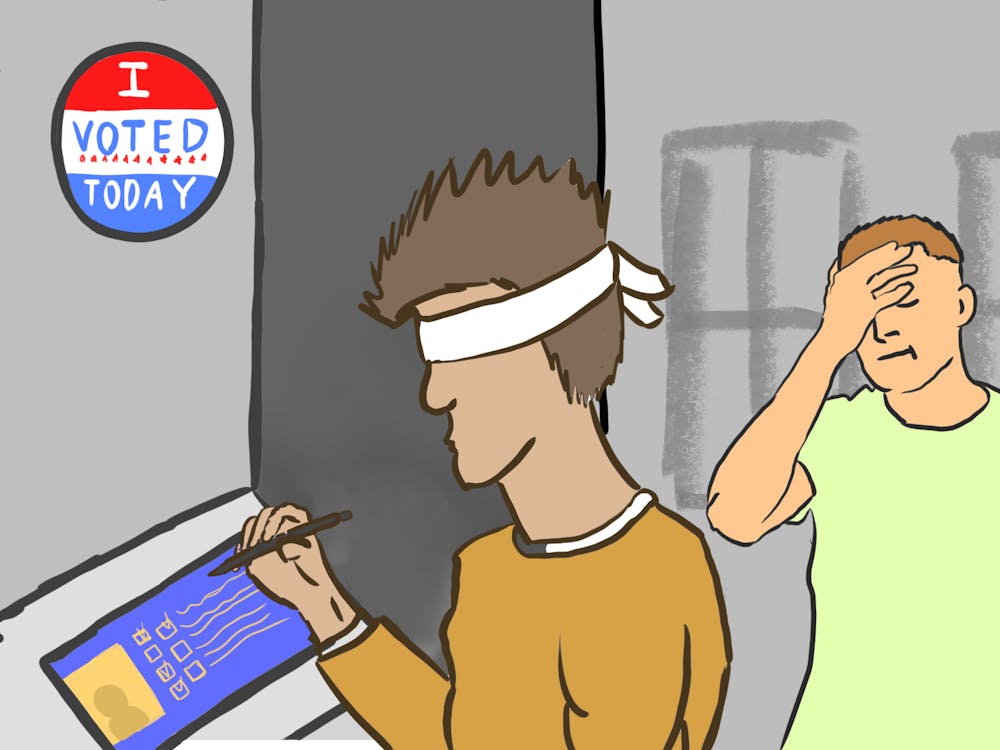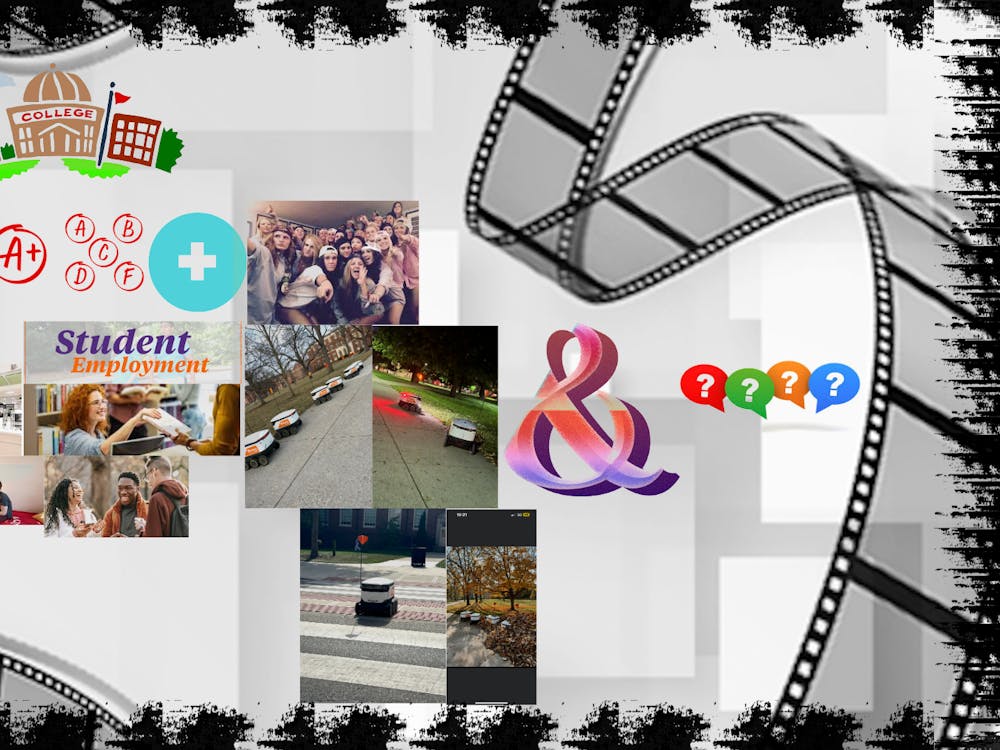Milam's Musings
Those of us still in college are often lampooned for being wide-eyed idealists that think they can change the world. And drunks. As college students, we are obviously red-eyed drunk every hour of the day; but I digress.
Then at some point, that idealism's sheen wears off and turns into cloudy cynicism.
Cynicism is fashionable or maybe it's always been fashionable, but it's wrongheaded. Getting older doesn't have to mean the waning of idealism.
If getting older means I have to wake up every morning with cynicism, like that green slimy gunk lathered at the back of your tongue when you haven't brushed thoroughly, then, no thank you.
But of course, the cynic doesn't think they are a cynic. They think they're privy to the inner workings of the "real" world and that once we - the young idealists - see this "real" world, then we, too, will become the euphemistic realist.
As if we're not already living in the real world with a job, school and social pressures to worry about.
This cynicism is manifested out of a kind of personal misery, out of being stuck in a routine befitting the contours of hell. A dead-end job, crippling debt, unhappy relationships and so on foster this bleak attitude in the fundamentals of living.
Or maybe those issues are in their past; but in the present, it could happen again, so best to maintain that cynicism. A friend of mine, Mike Hern, described it best and I couldn't resist including his insight.
"Being cynical is just a way to protect you from getting hurt. My motto is, the more time you spend thinking of what's been taken from you, the more there is flying out the window," he said.
These people are not necessarily depressed, although they certainly could be, but rather they feel as if their previous optimism has been futile in the past. They've been burned and grafting optimism on that scarring is not easy.
No doubt I've been hurt, too. Everyone has in small and large doses. I still remember the day after my ex broke up with me on Valentine's Day, nursing a Blue Moon hangover, balling my eyes out over Ray LaMontagne's melancholy, "Burn."
Enjoy what you're reading?
Signup for our newsletter
But would the remembrance of the pain that brought about those tears as I now move forward in life be worthwhile? Not as I see it. If I want to make myself the North Korea of the human race and shield myself from others, then yes, it would.
Perhaps that is the worst manifestation of cynicism is the cynicism in people. It's one thing to look at the world, seemingly infinite in size from our perspective, and think it monolithic, but it's something else entirely to always see the worst in people.
For instance, how often have you heard someone say humans are inherently violent? I would wager a guess that a lot of people accept such a proposition at face value. "Well, of course, we're inherently brutish, nasty people."
We just seemingly needed this abstract notion of a "society" and government to tame the worst tendencies of ourselves.
But I wholeheartedly reject this notion and the cynicism that backs it. Thinking this enables the idealism to fade over time. It also fuels misconceptions about the world we live in. If we are inherently violent, then things are obviously getting worse, right?
Actually, no. We are living in the most peaceful time in human history. When looking at rates of violent crime, not just in the United States, but taking into consideration the world and its genocides and wars, we are doing alright, guys.
To dawn the hat of armchair sociologist, without getting too deep into it, it's generally agreed upon that human beings are social creatures. If we were inherently violent creatures, then it would seem to contradict this other innate social characteristic.
In other words, to survive as a species, we needed to work together and cooperate. That means killing each other less.
Ask a cynic, however, and they will say things couldn't be worse. The cynic says they view the world as it actually is and the silly idealist views it as they think it ought to be, but as perceptions of violence in the world show, the cynic seems to view the world as it was.
When we let go of that "ought to be," we do so at our own peril.
Sure, we are flawed since we have a knowledge problem - we can't know everything about everything, thus we make mistakes - but being flawed does not mean we are violent. That without government or without these legal constructs, we would chop our neighbor's head off.
Most people will live out their lives without ever having purposefully, physically harmed someone. Certainly not to the degree of killing them.
I am an optimist and yes, I have my bad days, too; my days where I momentarily shroud myself in misanthropy, but living like that seems awfully safe.
Misery loves company and is easy to find, especially when you've isolated yourself from other humans in fear of being hurt by them, but happiness, optimism, you gotta pursue them.
That's what cynicism is in the end. It's masquerading as some high-minded, pragmatic look at the world when really it's the antithesis to actually living and socializing in the world.
It is said that all good things come to an end. Then the inverse must also be true: All bad things also come to an end.
You may say I'm a glass-is-half-full person. Actually, I'm a glass-is-empty person since I'm a college student, after all.




